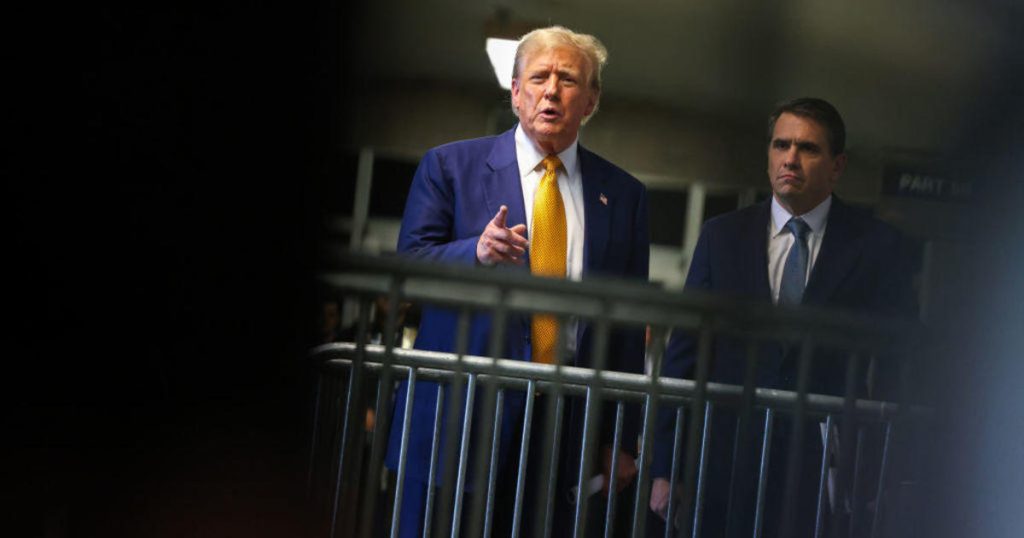In the trial of former President Donald Trump, a forensic analyst working for Manhattan District Attorney Alvin Bragg testified about a recording of Michael Cohen speaking to Trump. In the recording, Cohen discussed opening a company to transfer information about a deal involving former National Enquirer publisher David Pecker, who helped suppress a model’s claim of an affair with Trump. Trump can be heard asking about the payment for this transaction, referring to the amount paid to the model, Karen McDougal. This testimony shed light on the negotiations and agreements made between various parties involved in the scandal.
Keith Davidson, who was Stormy Daniels’ former attorney, also testified in the trial about the $130,000 payment from Cohen to Daniels just before the presidential election. Davidson discussed the details of the deal and the interactions he had with Cohen regarding the payment. Another recording introduced during the trial revealed Cohen expressing Trump’s regrets about the deal with Daniels, indicating Trump’s involvement in the agreements and transactions related to the hush money payments. This testimony provides insight into the discussions and decisions made by Trump and his associates regarding the scandal.
The trial also involved Cohen’s expected testimony as a central witness against Trump, who has pleaded not guilty to 34 felony counts of falsifying business records. Trump has consistently denied committing the crimes and allegations against him, including the claims of affairs with Daniels and McDougal. Cohen’s testimonies and recordings presented in the trial are crucial pieces of evidence that shed light on the extent of Trump’s involvement in the hush money payments and attempts to cover up the affairs. The trial aims to uncover the truth behind these transactions and hold accountable those responsible for any wrongdoing.
The recordings and testimonies introduced in the trial highlight the complex web of relationships and agreements that were made to suppress the allegations of affairs and protect Trump’s reputation. The involvement of key figures such as Pecker, Cohen, and Davidson in these deals indicates the extent to which Trump and his associates were willing to go to keep these scandals hidden from the public. The trial serves as a platform for unraveling the truth behind these secretive transactions and exposing the individuals involved in orchestrating them. Through the testimonies of those directly involved, the court aims to determine the legality and consequences of these actions.
The trial proceedings bring into question the ethical and legal implications of using hush money payments to conceal potentially damaging information about public figures. The revelations made during the trial shed light on the tactics employed by individuals close to Trump to protect his image and reputation, raising concerns about the abuse of power and manipulation of the legal system for personal gain. By examining the details of these transactions and agreements, the court seeks to determine the extent of Trump’s involvement in these schemes and hold accountable those responsible for any criminal behavior. The trial serves as a critical examination of the intersection between politics, business, and personal morality in the pursuit of justice.
Overall, the trial of former President Donald Trump involving hush money payments and allegations of affairs sheds light on the inner workings of high-stakes negotiations and agreements made to protect individuals from damaging scandals. The testimonies and recordings presented in the trial offer valuable insights into the motivations and actions of key figures involved in these deals, revealing the extent of Trump’s involvement in the hush money payments and attempts to cover up the affairs. The court proceedings aim to uncover the truth behind these transactions and hold those responsible for any illegal or unethical behavior accountable, serving as a reminder of the importance of transparency and integrity in public life.


